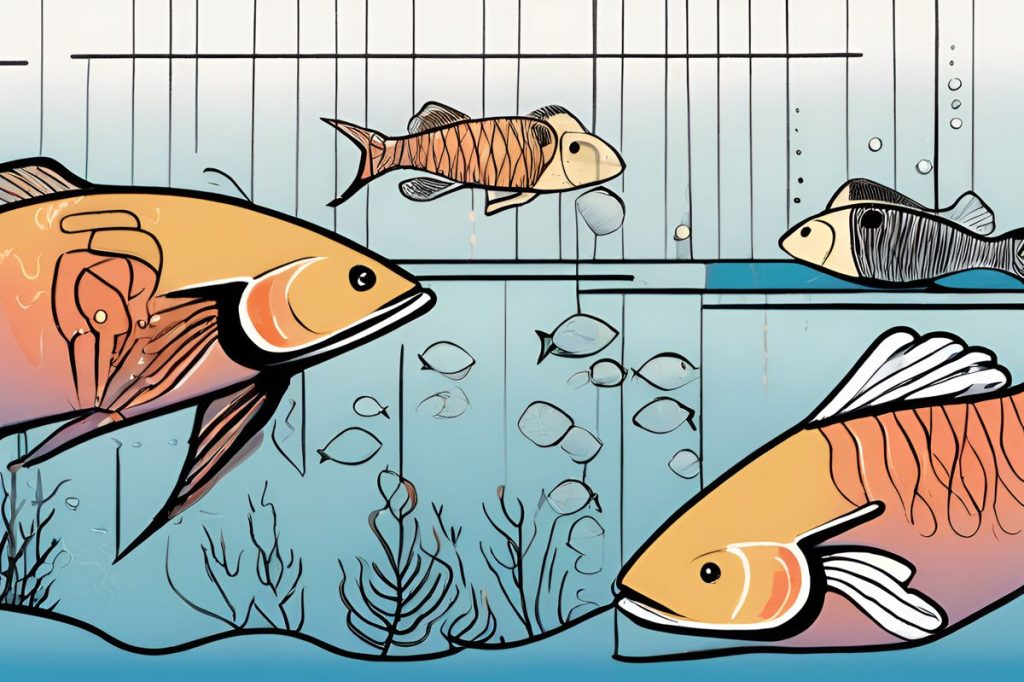Cyprus is hailed as a leader in Sustainable Aquaculture under the Commonwealth Blue Charter, showcasing innovative private sector initiatives in fish farming. The recent Commonwealth Ocean Ministers Meeting held in Paphos highlighted Cyprus’s commitment to ocean health and the establishment of a Centre of Excellence for policy-making and marine resource management.
What is Cyprus’s role in sustainable aquaculture under the Commonwealth Blue Charter?
Cyprus is recognized as a champion country for Sustainable Aquaculture under the Commonwealth Blue Charter, showcasing effective private sector-led initiatives in sustainable fish farming. It also hosts the Centre of Excellence for the Blue Charter, which aims to guide maritime ecosystem management and promote sustainable marine resource utilization.
Commonwealth Blue Charter and Cyprus
Under the Commonwealth Blue Charter, Cyprus has been recognized as the champion country for Sustainable Aquaculture. Patricia Scotland, Secretary-General of the Commonwealth, emphasized the collective power of the Commonwealth to lead in sustainable ocean management during a historic meeting. The first Commonwealth Ocean Ministers Meeting, which convened in Paphos, saw ministers and officials from 28 countries, as well as representatives from 12 observer organizations, come together to discuss the future of our oceans.
Cyprus’s role as a host was not only logistical but symbolic of its commitment to ocean health. It’s a commitment that stands out, as this small Mediterranean island nation leads by example in the practice of sustainable fish farming. As a key player in the aquaculture industry, Cyprus has shown that private sector-led initiatives can result not only in economic opportunity but also in sustainable practices that benefit the community and the environment.
Innovation and Collaboration in Aquaculture
Responding to questions at the press conference, Marina Hadjimanolis, the Deputy Minister of Shipping for Cyprus, highlighted the significance of the gathering. She took pride in noting that Cyprus can share best practices with other nations, especially in areas where technology and ocean science intersect. A notable mention was the high percentage, an estimated 80%, of fish from aquaculture that are cultivated in Cyprus, recognized for both their quality and taste.
This approach to aquaculture presents a model for entrepreneurial ventures, where innovation leads to sustainable outcomes. The commendation by Patricia Scotland underlines the potential for aquaculture to be a driving force for not only food security but also economic stability, particularly in small island nations.
A Centre of Excellence for the Blue Charter
The Commonwealth meeting in Cyprus was also a platform for advancing scientific and policy collaboration. Patricia Scotland announced the signing of a three-year memorandum of understanding, establishing a Centre of Excellence for the Blue Charter. The Centre, a combined effort between the Commonwealth, the Ministry of Shipping of Cyprus, and the Cyprus Institute of Marine and Maritime Research, will serve as a beacon of expertise for policy-making.
The Centre’s goals are ambitious and necessary: to support and guide Commonwealth countries, as well as other island and coastal states, in managing and protecting maritime ecosystems, combating marine pollution, and utilizing marine resources sustainably. This dovetails with the Commonwealth Blue Charter’s broader objectives of financing ocean-related and climate initiatives, a cause that the Commonwealth Climate Finance Hub actively pursues.
Towards a United Ocean Policy
Six years have passed since the adoption of the Blue Charter, and its promise of united action for ocean conservation remains strong. The recent meeting in Cyprus reinforced this commitment, with discussions on the framework and roadmap for a Commonwealth Ocean Declaration. Looking ahead to the next gathering in Samoa, there is anticipation that leaders will adopt this declaration.
The ocean ministers’ conference reiterated the importance of cooperative action and funding for ocean initiatives. With rising sea levels and the permanence of maritime borders becoming increasingly pressing issues, the unified approach to ocean governance has never been more critical. The challenges are many, and no country can face them alone, but with a shared vision and collaborative effort, a sustainable and resilient ocean policy is within reach.
What is Cyprus’s role in sustainable aquaculture under the Commonwealth Blue Charter?
Cyprus is recognized as a champion country for Sustainable Aquaculture under the Commonwealth Blue Charter, showcasing effective private sector-led initiatives in sustainable fish farming. It also hosts the Centre of Excellence for the Blue Charter, which aims to guide maritime ecosystem management and promote sustainable marine resource utilization.
What was the significance of the recent Commonwealth Ocean Ministers Meeting held in Paphos, Cyprus?
The recent Commonwealth Ocean Ministers Meeting held in Paphos highlighted Cyprus’s commitment to ocean health and the establishment of a Centre of Excellence for policy-making and marine resource management. It brought together ministers and officials from 28 countries to discuss the future of ocean management and collaboration under the Commonwealth Blue Charter.
What is the Centre of Excellence for the Blue Charter and what are its goals?
The Centre of Excellence for the Blue Charter is a collaboration between the Commonwealth, the Ministry of Shipping of Cyprus, and the Cyprus Institute of Marine and Maritime Research. Its goals include supporting and guiding Commonwealth countries and other coastal states in managing and protecting maritime ecosystems, combating marine pollution, and utilizing marine resources sustainably.
How does Cyprus’s approach to aquaculture showcase innovation and collaboration in the industry?
Cyprus’s approach to aquaculture highlights innovative private sector-led initiatives that result in sustainable outcomes. With a high percentage of fish from aquaculture cultivated in Cyprus known for quality and taste, the country serves as a model for entrepreneurial ventures in the industry. The recent Commonwealth meeting emphasized the potential for aquaculture to drive food security and economic stability, particularly in small island nations.

